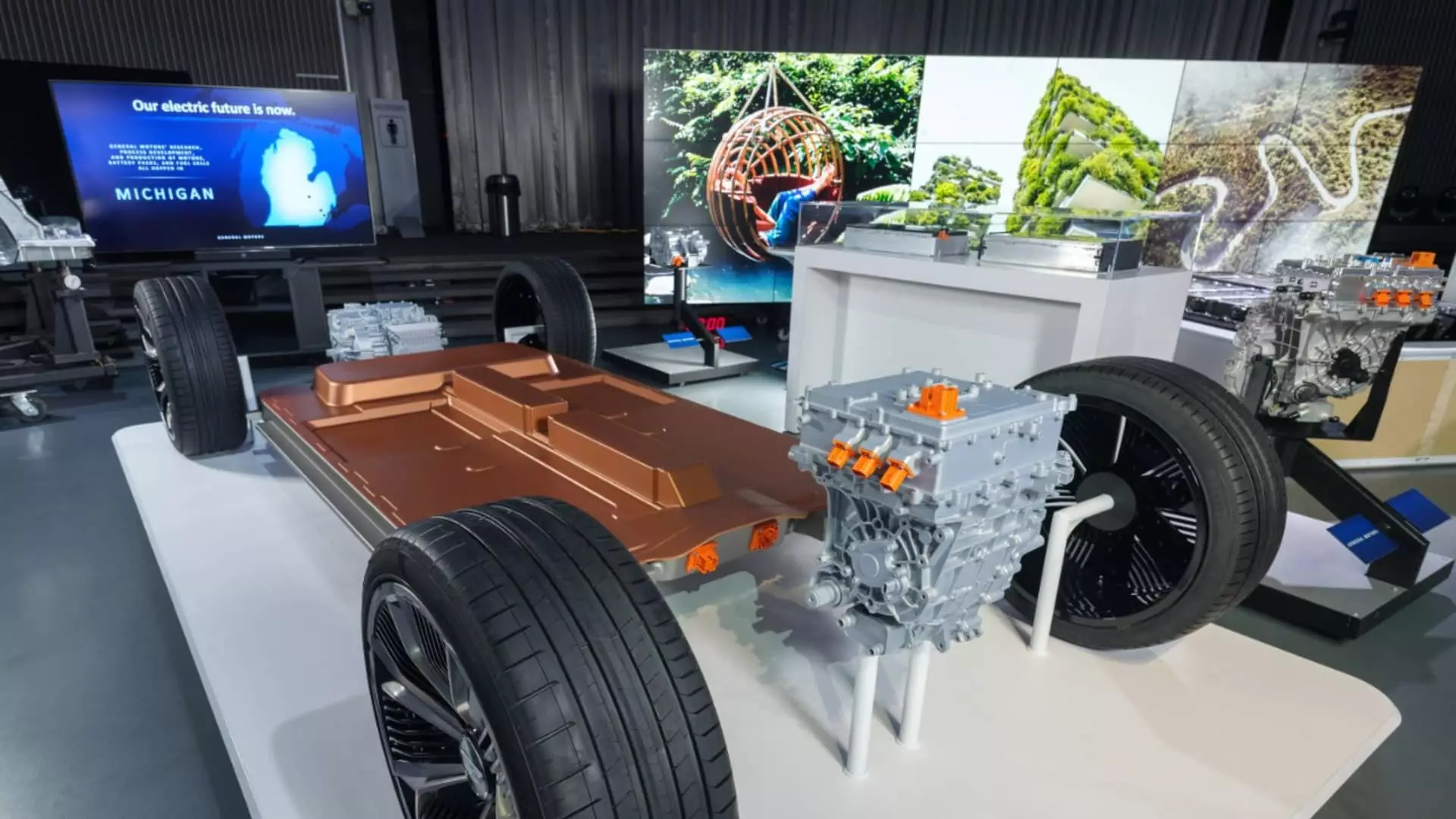In a strategic pivot that reflects the rapidly evolving landscape of electric vehicle (EV) manufacturing, General Motors (GM) has announced its intention to divest its stake in a significant battery cell production facility located in Michigan. The decision to sell its interest in this $2.6 billion plant to its joint venture partner, LG Energy Solution, was unveiled recently, sparking conversations around the future of GM’s electric vehicle ambitions and the broader implications for the automotive industry.
Expected to bring in approximately $1 billion in return on investment, the sale is underpinned by a nonbinding agreement that anticipates completion by the first quarter of the coming year. This facility, which boasts a colossal 2.8 million square feet, is poised to be the third establishment in the joint venture dubbed Ultium Cells LLC, supplementing existing plants in Ohio and Tennessee that are already operational. GM’s joint venture with LG Energy Solution, initiated five years ago, aims to bolster the automaker’s capabilities in the burgeoning EV space.
However, this move raises questions about GM’s operational capacities and market readiness amidst fluctuating consumer demand. With many automakers grappling with the hurdles of scaling up production, GM’s decision could be seen as a recalibration to ensure efficiency and sustainability in its manufacturing processes.
The announcement unfolds against a backdrop of slower-than-anticipated consumer interest in electric vehicles, a factor that GM must navigate carefully. In addition, the uncertainty surrounding federal incentives for EV manufacturing and purchasing under a new presidential administration creates a complex regulatory environment that influences automotive strategies. GM’s decision to focus on just one battery plant rather than multiple may be interpreted as a realism about the current market conditions, ensuring that resources are allocated efficiently.
While the sale holds implications for GM’s presence in the joint venture, the company has assured stakeholders that it will not detract from its overall stake within Ultium Cells LLC. Furthermore, GM remains committed to future collaboration with another battery supplier, Samsung SDI, indicating a diversified approach to securing battery technology.
Enhancing Efficiency through Strategic Partnerships
The immediate ramifications of the transaction highlight how LG Energy Solution will gain access to the Lansing facility to install its equipment, facilitating a smoother transition into full-scale operations. Currently employing nearly 100 individuals, the plant is projected to commence operations by the year’s end, a timeline that underscores the urgency of advancing EV capabilities.
In a complementary announcement, GM extended its partnership with LG Energy Solution, deepening their collaborative efforts on the development of prismatic battery cells—an innovation designed for improved manufacturing efficiency and cost reduction. Prismatic cells, known for their optimal space utilization and structural integrity, resonate with GM’s objectives of enhancing vehicle performance while mitigating manufacturing complexities.
GM’s commitment to battery technology innovation is evident as it navigates through a transformative period for the automotive landscape. The shift towards prismatic cells represents a significant evolution from the company’s initial focus on flat “Ultium” pouches. This diversification echoes in the company’s dedication to optimizing battery chemistries and designs, ultimately leading to enhanced performance and safety for electric vehicles.
Kurt Kelty, GM’s Vice President of Battery Cell and Pack, echoed a shared vision of refining battery technology to support the company’s long-term goals. This step can be viewed as not only a means to reduce vehicle costs but also as a crucial advancement in addressing the growing demand for sustainable transportation options.
GM’s strategic decision to sell its stake in the Lansing battery plant to LG Energy Solution and to enhance its technological collaboration positions the company to adapt more effectively to the challenges presented by the electric vehicle market. This pragmatic approach demonstrates a deep understanding of both present conditions and future trends in the automotive sector. As GM gears up to refine its production capabilities, the collaborations with key partners like LG Energy Solution will be instrumental in steering the company toward a more efficient and sustainable electric future. The automotive industry is undoubtedly on the brink of transformation, and GM’s actions reflect a calculated response to this dynamic environment.

